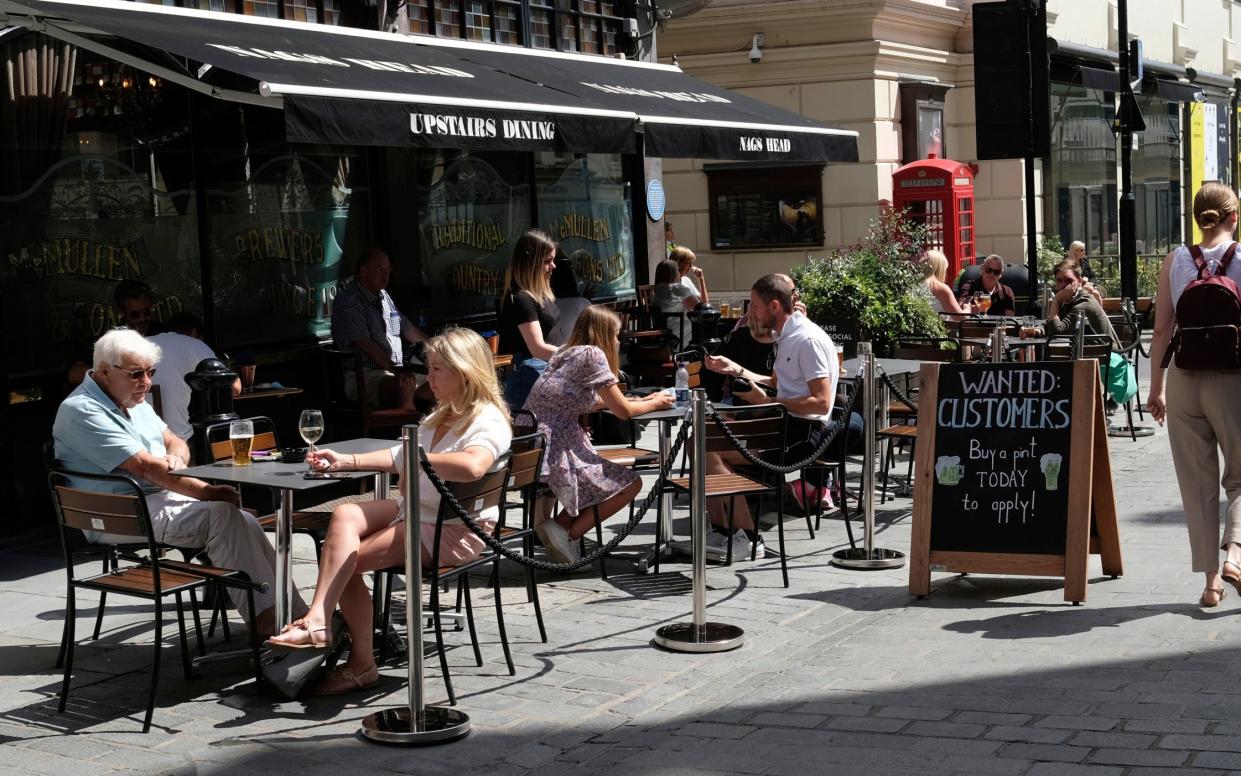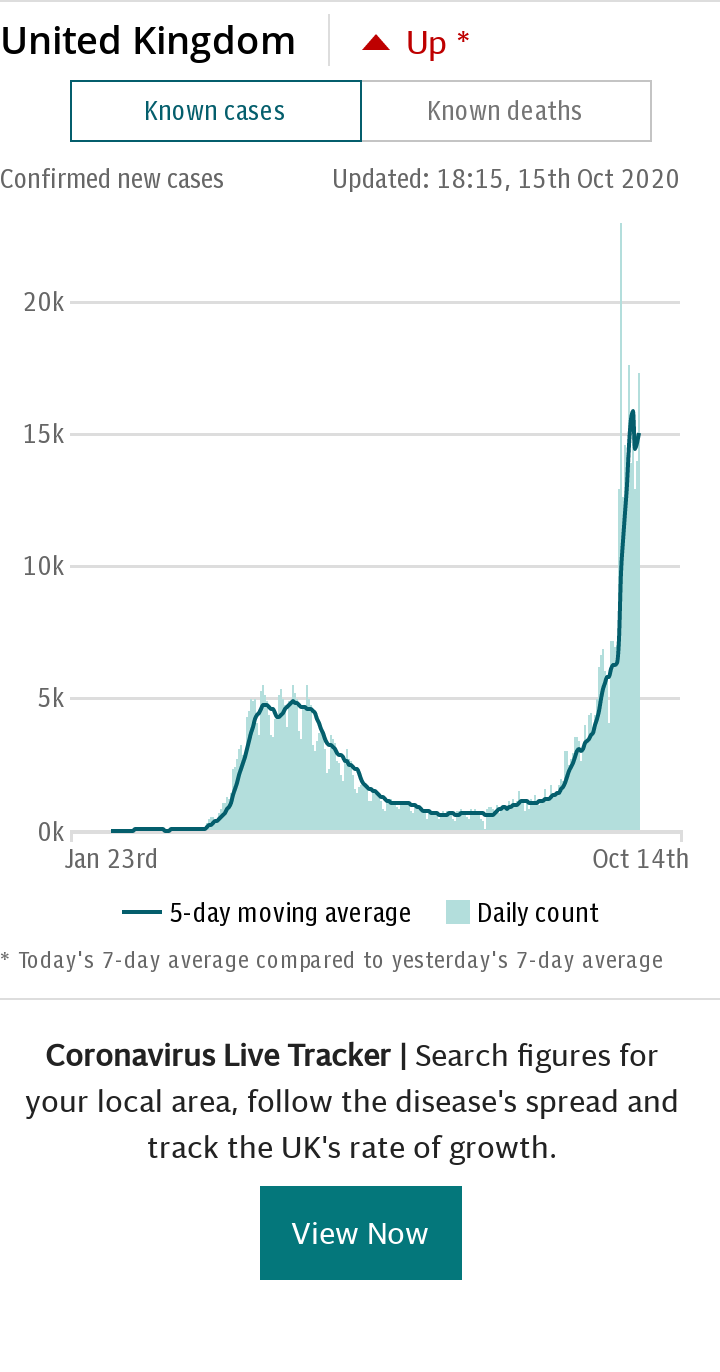Could pubs and restaurants close again? The latest rules and what happens if Covid-19 cases keep rising

Two months after pubs and restaurants were allowed to reopen their doors, albeit with considerable restrictions, the coronavirus rules are set to tighten. At Prime Minister Boris Johnson's press conference on Wednesday afternoon, it was announced that most social gatherings of more than six people are to be banned in England from Monday.
What are the new rules for pubs and restaurants?
As part of what Johnson dubbed "the rule of six", pubs and restaurants will only be able to take bookings of up to six people in line with the new rules on social gatherings in place from Monday September 14. The six can be from multiple households. Hospitality venues can have more than six people inside in total, but customers on individual tables must not exceed that number.
The rules differ from previous guidelines in that police have powers to enforce them, and businesses will be expected to as well. Individuals who fail to comply can be handed a £100 fine, doubling with each offence, to a maximum of £3,200. Operators will also be required to collect details for track and trace; previously, it was merely guidance. Business that fail to ensure their premises adhere to the rules face fines.
"It raises concerns," says James Lyon-Shaw, who runs The Drumming Snipe and Greene Oak, in Surrey and Berkshire. "But when you actually digest it, how it affects us specifically, it won't have a massive impact. From the start we chose not to take tables over six, and we wouldn't take tables of more than two households."
Lyon-Shaw admits it can be tough to manage, but says it has worked well and the vast majority of guests have been compliant and understanding. He admits it's difficult to establish who is in a household, and there's a common misconception that a family counts as a household, even if they don't live together.
Stuart Young runs two pubs in Northumberland, The Blackbird and The Northumberland Arms, and also says he has enforced the guidance. "We get dozens of requests a week for large tables, we're constantly saying no, and offending people by doing so," says Young, who was hospitalised with Covid-19. He hopes the change will simplify things, and give pub "a bit more teeth" against customers who wish to flout the rules.
Could pubs and restaurants close again?
It is possible, though nothing has been announced yet. Local lockdowns and curfews have been enforced throughout the summer, and the most recent, in Bolton, has seen a return to takeaway and delivery only for pubs and restaurants.
In Caerphilly, which is run by the devolved Welsh Parliament, hospitality businesses have been allowed to remain open, though operators should check if customers are from the same household.

In London, Diana Nagagereka, general manager of Brixton Village, says a spike in cases, and subsequent tightening of restrictions, was probably "inevitable". "Our tenants at the village are all currently adhering to the six max reservation policy, and so I am hopeful this change for dining and group drinking purposes should not be too severe."
Kate Nicholls, the CEO of industry body UKHospitality, believes the new restriction on socialising "reiterates how seriously we must all take the threat of a further spread of the virus."
How many people can I meet at the pub?
The maximum meeting in any social circumstance (schools, workplaces and organised sports are exempt) is six.
Nicholls fears the new announcements will erode the growing confidence in eating and drinking out, in large part thanks to the Eat Out to Help Out campaign. "The Prime Minister simply must make clear that hospitality venues are safe to visit, provided that businesses and customers work together to implement social distancing guidelines."
These concerns are shared by a number of restaurant operators. Hubert Beatson-Hird, owner-director of The Hunter's Moon in London, says the new rules are "absolutely disastrous." He has had 32 cancellations for this week since last night, and 40 for next week. "They [the Government] encouraged people to go out and support the hospitality industry, resulting in us bringing our staff back off furlough, only to now once again pull the rug out from underneath us." He thinks allowing groups of 10 would have been more manageable.

Caterers, who tend to work for larger groups (which have mostly been banned) are increasingly worried. Helen Skripek of the Derby-based The Butlers Pantry says they were just getting back on track, with groups of up to 30 placing orders. "This announcement is a disaster for our catering and events business." On Wednesday morning they woke up to their first cancellation, and fear many more are on their way. "It's a complete and utter tragedy."
Mike Fishpen, who runs a private chef service in Oxfordshire, has already received three cancellations, and lost a large deposit for Christmas Day. "It's hard to know if I will have any income now going into winter," he says.
Can I book a table for more than one household?
Providing the entire group is no more than six, you should still be able to book for more than one household.
What will happen if there is a second wave and lockdown?
There is a growing concern that a second lockdown, or tighter restrictions than are currently in place, is on the cards. "If there is a need to be stricter in certain areas then so be it," says Cyrus Todiwala OBE, chef proprietor at Café Spice Namasté in London. But Todiwala hopes these will continue to be localised, so restaurants and pubs in areas with low rates of infection can continue to operate.
There is also a worry that a second lockdown won't be matched by significant financial support. Many are calling for an extended or flexible furlough, which Nicholls says is "vital" to protect jobs and businesses. "A solution to the rent impasse is also crucial, whether there is a second shutdown or not," Nicholls continues. Without this, she fears many businesses will go under.

 Yahoo News
Yahoo News 
